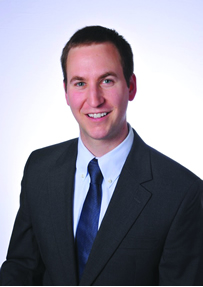Too many rheumatologists spend too much time on repetitive tasks, but new technology tools can help.

“A lot of physicians have EHRs that are not very well designed,” said Paul Sufka, MD, a private practice rheumatologist with HealthPartners in St. Paul, Minn. “You can spend hours and hours doing the same things over and over. The right tech tools can help you spend less time with your computer and more time with your patients.”
Dr. Sufka will discuss the latest generation of productivity tools during a clinical symposium on Tech Tools for Rheumatologists today from 2:30 – 4:00 pm. The session will be co-presented by Suleman Bhana, MD, a private practice rheumatologist in Middletown, NY.
Many EHRs have useful tech tools built into the system, Dr. Sufka said. But documentation can be sparse, and physician training often glosses over productivity tools.
One common example is assigning hot keys or hot phrases, specific keyboard shortcuts to replace commonly used terms or phrases. On the Epic system, an example would be typing “.as” to tell the system to enter “ankylosing spondyloarthritis,” saving hundreds of keystrokes every day for many rheumatologists.
“You can take the same concept to treatment plans, patient information, almost any phrase or information that you use over and over,” Dr. Sufka said. “Take something like giant cell arteritis, where most patients are on prednisone. You can create your own language about bone health, a reminder to get a Dexa scan, taking calcium and vitamin D for bone health, potentially giving some other drug to prevent osteoporosis. Using software effectively is all about automating repetitive tasks.”
Every computer system provides different shortcuts and automation techniques. And because many rheumatologists work in larger multispecialty groups, they have little control over which EHR they use.
The good news about automating repetitive tasks is that every computer system provides different shortcuts and automation techniques. That means your EHR can be tweaked and made more useful than the standard version explained during staff training.
“Tweaking your computer is a mindset more than it is a specific set of tools,” Dr. Sufka said. “Technology tools change too quickly to point to a single best application or program. The mindset is always asking yourself how to eliminate steps, how to automate everything that you do more than a few times a day, how to change defaults to improve the workflow, how to create and customize templates. A lot of things are already built into systems, there for the asking. You just have to remember to ask.”
Another important tool is batching interruptions to streamline workflow by spending a consistent few minutes on a single type of task than to jump from one to another.
Every task interruption requires three to five minutes for recovery mentally. Instead of taking a phone call, then doing a couple of refills, looking at a lab, and going back to another refill, batch similar tasks. Set aside discrete blocks of times for phone calls, other blocks for refills, and other blocks for lab reviews.
“Had I not gone into medicine, I would have gone into programming or computer engineering,” Dr. Sufka said. “I still keep up with the field and what I see are programmers and software developers coming up with new ways to automate repetitive tasks. The computer world has deliberately broken down silos and aggressively repurposes ideas from other fields. That is a mindset we can use in medicine, as well. Every ten minutes of computer time we can automate is another ten minutes we can spend with patients.”
